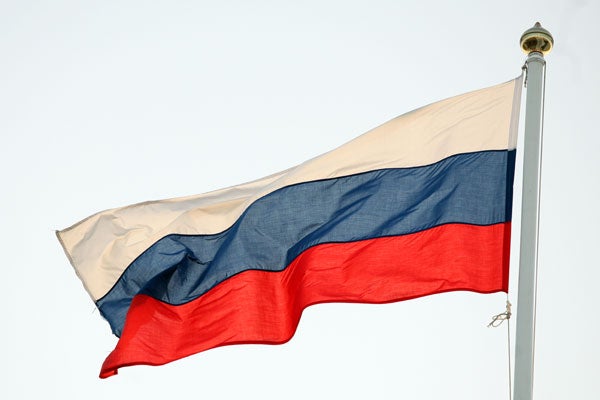Russian law enforcement agents have conducted hundreds of unannounced searches of Russian non-governmental organizations (NGOs). Authorities have searched 600 organizations across the country since last week, according to media reports.
An interagency law enforcement task force raided Amnesty International’s Moscow office in an unannounced inspection on Monday. Sergei Nikitin, the agency’s Russia director, called the move “harassment” that “reinforce[s] the menacing atmosphere for civil society” in Russia today.
Alexander Cherkasov, the head of the NGO Human Rights Centre (a.k.a. Memorial)—which officials also raided—likened the searches to a witch hunt. He said the powers that be called on the security services to find “agents and extremists”—and the NGOs are paying the price.
This is not the first time Russia has acted in this manner. Between the 1930s and 1950s, Joseph Stalin had hundreds of thousands executed during a mass purge of those his government accused of foreign espionage. Memorial’s work is dedicated mostly to commemoration of Stalin’s victims.
Lyudmila Alekseeva, head of the Moscow Helsinki Group and Nobel Peace Prize nominee, remained defiant in the face of Putin’s crackdown, saying, “I will tell you one thing: We do not consider ourselves to be agents of foreign states and we will not register as foreign agents, no matter how they inspect us.”
It is likely that these searches will lead to the opening of criminal procedures against human rights activists, resulting in intimidation of the society at large. Officials justify the raids as tax inspections, which originated under the NGO law from last November. Under the law, NGOs that receive money from abroad and engage in political activity must register as “foreign agents.”
The law implies that NGOs that take money from the West have foreign interests at heart and thus are enemies of Russia. The NGO law was only part of a larger crackdown since Putin became president in May—“the worst year for human rights in Russia in recent memory,” according to Human Rights Watch.
The furor over NGOs originated in December 2011, with Putin’s reaction to the protests against the fraudulent parliamentary elections. Putin said the United States spends “hundreds of millions of dollars” on NGOs to “shake us up so we don’t forget who is boss on our planet.”
For the 2009 “reset,” Presidents Obama and Dmitry Medvedev established the U.S.–Russia Bilateral Presidential Commission. The 18 working groups cover specific topics, including “Rule of Law,” “Counterterrorism,” and “Arms Control & International Security.”
This January, the U.S. withdrew from a joint U.S.–Russian civil society working group as a response to the actions the Russian leadership has taken—and the United States may be forced to go further.
Russia’s law enforcement has a history of abusing the law, as in the posthumous trial of whistleblower Sergei Magnitsky, after whom a U.S. law in named. So why should the U.S. remain in a working group with Russia on the “Rule of Law”?
The U.S. has no business upholding such faux-cooperation agreements when Russia doesn’t uphold its end of the bargain. The sheer breadth of the NGO searches shows the resolve to trample basic human rights.
Now it is the United States’ turn to take the current campaign against democracy seriously.
Benjamin Tigay is currently a member of the Young Leaders Program at The Heritage Foundation. For more information on interning at Heritage, please click here.



























